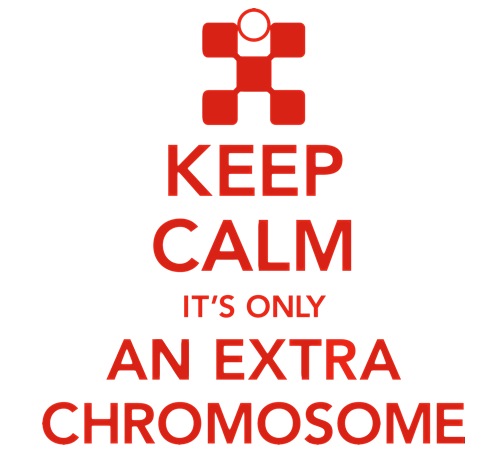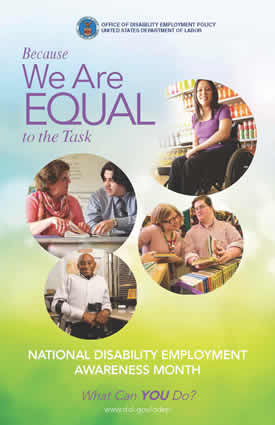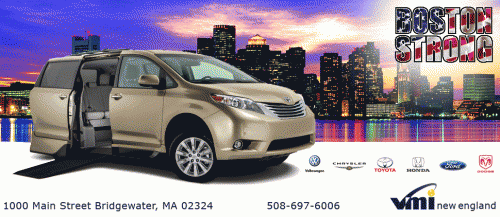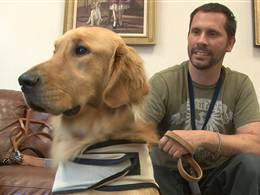
Despite the incredible number of medical advances which have enriched and extended the lives of people with Down syndrome, Trisomy 21 continues to be extremely misunderstood. Many people look at Down syndrome through the lens of outdated stereotypes and misconceptions.
Down Syndrome Awareness Month, celebrated each October, is one way to change that. The goal of Down Syndrome Awareness Month is, of course, to spread awareness, to educate about Down syndrome, and to celebrate people who have Down syndrome, and their abilities and accomplishments.
Facts about Down syndrome:
- What is Down syndrome?
Trisomy 21, or Down syndrome, is a genetic disorder which is caused by a full or partial third copy of the 21st chromosome. There are three types of Down syndrome. Trisomy 21, or nondisjunction, is the most common kind, seen in 95% of Down syndrome cases. The extra chromosome is present in every cell in the body. Translocation Down syndrome occurs in about 4% of Down syndrome cases and is caused by a partial copy of the 21st chromosome breaking off and attaching to another chromosome (usually the 14th chromosome). Finally, Mosaic Down syndrome is the rarest case, seen in about 1% of Down syndrome cases. Mosaic Down syndrome happens when the nondisjunction of an extra chromosome is present in some, but not all, of the body’s cells. Some cells will have 47 chromosomes, while the rest will have the typical 46 chromosomes.
- Is Down syndrome rare?
No, Down syndrome is not rare. It is the most commonly occurring genetic disorder or birth defect. One out of every 691 babies born in the United States will have Down syndrome, and there are over 400,000 people who have Down syndrome living in the United States. Down syndrome occurs in all races, and while women are at a greater risk of conceiving a child with Down syndrome as they get older, the majority of babies with Down syndrome are born to younger mothers.
- What are the effects of having Down syndrome?
People with Down syndrome usually have hypotonia, or low muscle tone, and developmental delays. Early intervention programs and therapies are able to help children with Down syndrome reach the same milestones as typical children, albeit at a slightly longer pace. The rate at which the person with Down syndrome reaches these milestones, as well as the developmental delays he or she has, will be highly individual. There usually are cognitive delays as well, ranging from mild to moderate. It is important to remember, though, that each person with Down syndrome is different, just like typical people. People with Down syndrome are also at increased risk for various medical conditions, such as heart defects, hearing problems, thyroid conditions, childhood leukemia, and Alzheimer’s. However, medical advances have made most of these issues highly treatable, to the point where people with Down syndrome have life expectancies similar to those of people with typical chromosomes.
- What are the physical characteristics of Down syndrome?
There are common markers for Down syndrome, which include almond-shaped eyes, a single crease in the palm, flat facial features, small ears, and extra space between the big toe and second toe. However, each person with Down syndrome is an individual, so some people may exhibit many of these characteristics, while others will not have any.
- Can people with Down syndrome lead normal, fulfilling lives?
People with Down syndrome often do work and make contributions to society. They also get married, as well as have friendships and other meaningful relationships. Unfortunately, most men with Down syndrome cannot have children, or have a lower fertility rate than typical men. About 50% of women with Down syndrome are able to have children. Thirty-five to fifty percent of children born to a mother with Down syndrome will also have Down syndrome, or other developmental delays. Most importantly, people with Down syndrome do lead happy, fulfilling lives. Studies have consistently shown that people with Down syndrome overwhelmingly report being happy with themselves, their lives, and how they look.
- Are people with Down syndrome always happy?
No. People often refer to people with Down syndrome as always happy, or as constantly full of love and joy, but this does a disservice to people with Down syndrome. They experience the full range of emotions, just like everyone else. Reducing them to one emotion or one feeling reduces them to less of a person. They feel happiness, along with sadness, anger, frustration, and countless other feelings, and they deserve to have those feelings acknowledged.




